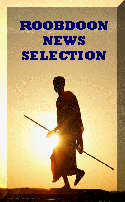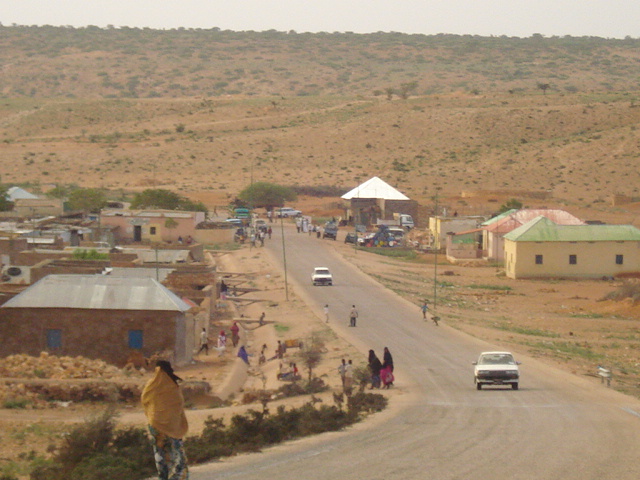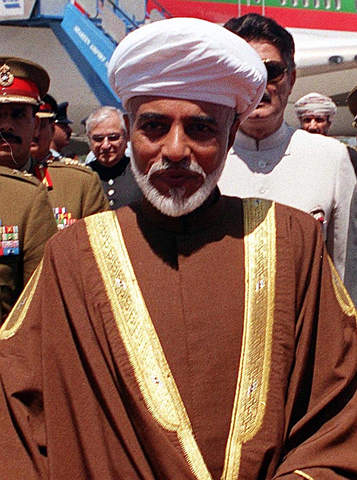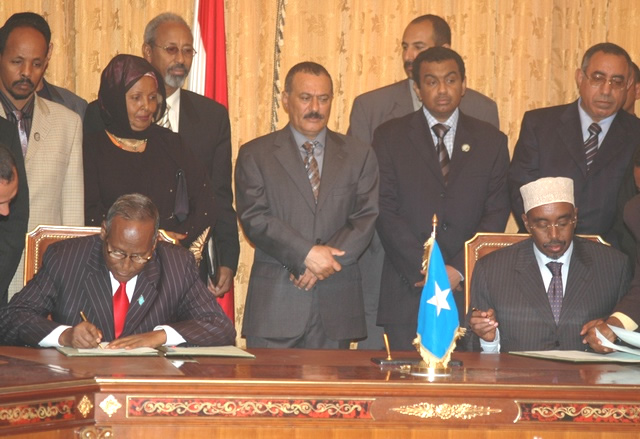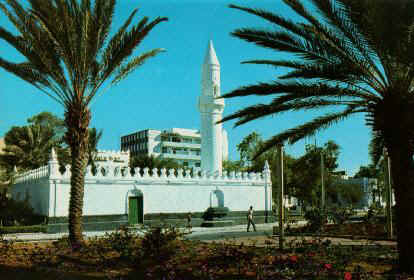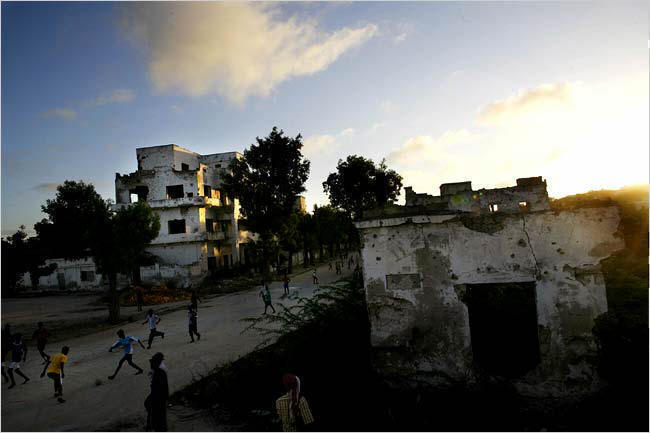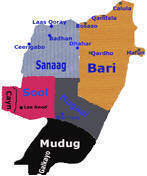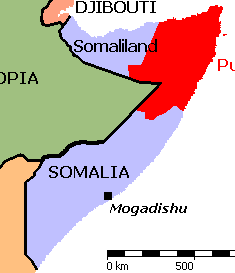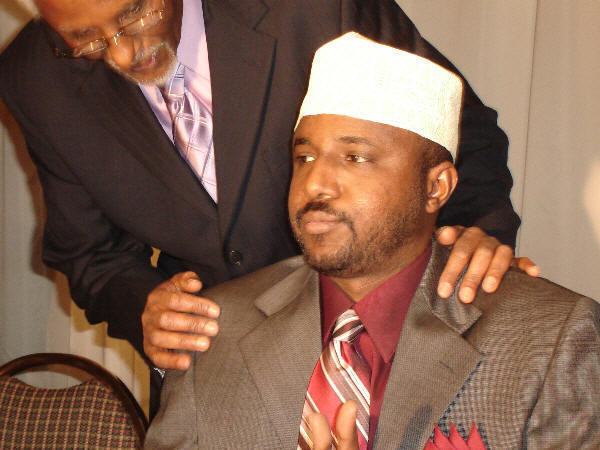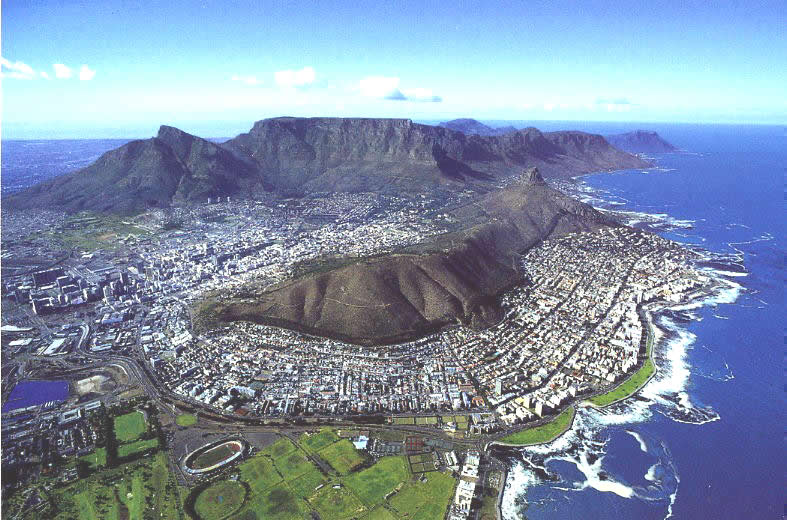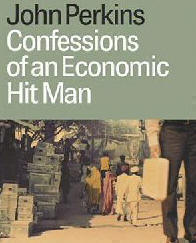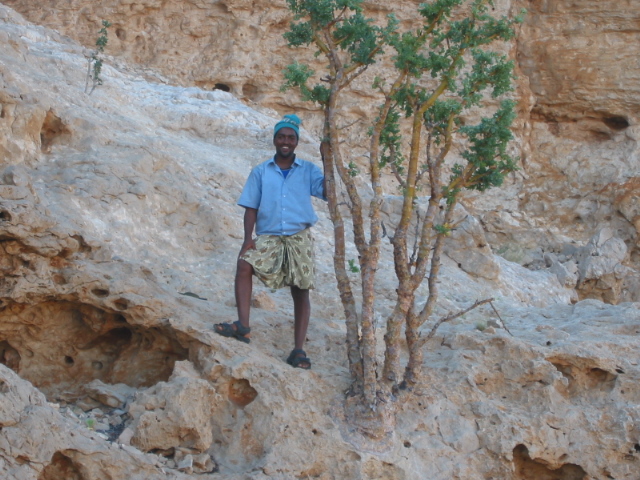
Somalia`s New Tongue Twisting Names
Biyokulule Online
Wednesday, April 06, 2011
The Somali intellectuals are deeply affected by the scars of the long civil war and subsequently are experiencing a sort of psychological complex (such as westofication, arabization, or afrocentrism). They are therefore struggling to obliterate the names and histories of this ancient people called Somalis.
First, Roobdoon Forum has to commend the creation of regional administrations that is based on �Do-It-Yourself� democracy or �bottom-up approach�.
As a rule of thumb, the renaming of geographic spots should be permitted in instances of preservation of a historical and cultural heritage of the peoples who inhabit in those regions. That is, it can be tolerated for the purposes of the return to the names widely known in the past.
However, the problem is that some of the new regional names seriously require some attention and a formula under which all Somali regions should have an agreed Somali names.
The new administrations, formed in the last two decades, forged names that are new to the Somali ears. They called their entities
Many Somalis do not agree to names that are anglicized or borrowed to replace Somali ones � such as Somaliland, Puntland, and
During the colonial era, it was common to change names of places like streets, towns, and regions just to be named after a colonial officer or even a European town. However, since independence (and before this failed State) Somalis were taking more pride in their roots and heritage.
Giving Somali regions to imported or anglicized Somali names has no real significance that would make it worth to fight and shed blood. However, its usage reflects the continued state of inferiority complex inherited from the colonial period. It also reveals the contradictory thinking of these Somali leaders and intellectuals who manifest a thought that is in favour of Somali causes against the alien culture. They manifest in despising Somali names, on the one hand, and glorify Somali culture and language, on the other.
By using these imported/and anglicized Somali names, the Somali people will remain victims of the backward mentality of these leaders. Instead of perceiving all the richness of the Somali language and literature, these leaders seek to borrow foreign terms, driven by the love of foreign taste.
Adding Salt to Injury
Adding salt to injury, Professor Mohamed Abdi Gandhi made last week another unreasonably arrogant gesture when a new foreign word, Azania*, is named to parts of
It is indisputable that Gandhi is a Somali scholar and he deserves respect. The name
It seems that the new name was intended to appease our neigbour, proving that
Many Jubba residents have already denounced the move and indicated that the new name showed lack of experience and sensitivity on the part of Gandhi and his company. The name
Changing the names is not the only matter in here. The issue is that people have not voted to change the name of their region into something unpronounceable by Somalis. Therefore, many view this new name business as a trick in which a few want to sow discord and spread conflict among Somalis.
Somaliland officials have numerous times offered an explanation for the anglicized name they gave to parts of northern
The Forum stresses that the names Somaliland, Puntland,
Many Somalis want that the regions that are now called �Somaliland� �Puntland�, �
Moreover, because the name Azania is closely associated with southern parts of Africa (from
Did Gandhi choose
The short answer is NO. The names Jubba and Gedo, for instance, are not colonial or foreign names.
Then, why do Gandhi and other revisionists want to obliterate what is truthfully their past and replace it with mythical ones?
The answer is probably that the Somali intellectuals are deeply affected by the scars of the long civil war and subsequently are experiencing a sort of psychological complex (such as westofication, arabization, or afrocentrism). These intellectuals are therefore struggling to obliterate the names and histories of this ancient people called Somalis.
They are imposing their invented or borrowed names and histories on Somali regions, in order to treat anything but Somali names and histories as if it is the only true one. Their adage in geographical names became as synonymous as �the mythical histories and names are much worth than factual names and histories of our settlements, mountains, seas, and rivers�.
In the last two decades, having a foreign taste is not an unknown malady in
Despite the feeble historical records, the Somali oral tradition taught us that ancient Somalis established a unique culture and settlements in which its names have endured. Although Somalis are in fact Muslims and adopted Islamic ways one thousand or so years ago, they have yet a distinctive language and culture that is different from other Muslims.
The Forum says to those Somali scholars, who are charmed by foreign names and feel that they must emulate it: have at least a little faith in your Somali culture.
Roobdoon Forum
Wednesday, April 06, 2011
* Azania is also an academic journal published by the British Institute in Eastern Africa. It focuses on archaeological research in Africa and this year marks its 45th anniversary. In 2009, it has been officially renamed as Azania: Archaeological Research in Africa.
**Note: The Somali writing system is an adaptation of the Roman alphabet (aka Latin alphabet). There are 26 letters and twenty-one of these letters represent consonant sounds (B, T, J, X, KH, D, R, S, SH, DH, C, G, F, Q, K, L, M, N, W, H, Y, `). The remaining five letters (A, E, I, O, U) have the functions of short vowels and the doubling of these vowels represents the long vowels. To note, the Latin letters of Z and P are not in the Somali script and the letters S and B are used instead.
Somalia creates new state, Azania, latest of at least 10 new administrations recently added
By MALKHADIR M. MUHUMED
Associated Press
April 03, 2011
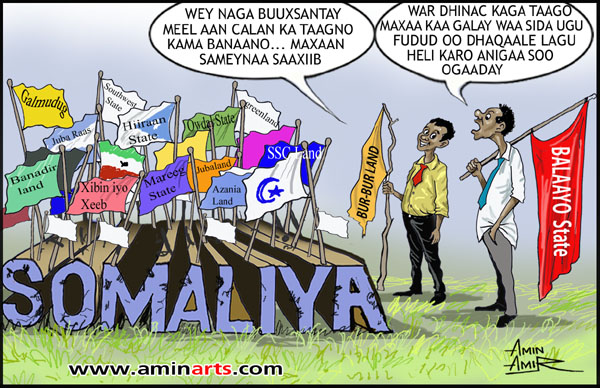
The creation of Azania was celebrated Sunday in a colorful ceremony in Kenya`s capital. Its creation brings the total number of new states to more than 10.
�Our aim of establishing this administration is to first liberate these regions,� he said. �We are not breaking away from
Much of Somalia`s southern and central regions, including large swaths of the capital of
But Somali Information Minister Abdulkareem Jama said the new states are a bad idea.
�Taking that path is a disaster,� he said. �The idea that every region and every group of people has to form their own government without the consultation of the national government will only create more differences among communities and encourage Somalis not to come together.�
Somalia`s interim charter allows for new states. The idea is appealing to many, who still bear hatred toward the country`s last centralized government, which failed to accommodate many residents outside the capital.
In 1991, inhabitants of northern
In 1998, residents of the northeast followed suit by creating the semiautonomous region of Puntland.
�The whole process is being driven by local people who just said `let`s try at different options that are responsive to our local needs,`� said Rashid Abdi, a Somali expert at the International Crisis Group.
Many say the rush to form these states may create conflicts among communities because of the lack of demarcated borders. The national government can do little, as it can barely control a few blocks of the capital, where it is busy battling Islamist militants.
�The biggest danger of this trend is that in a few contested areas the declaration of regional administrations could trigger armed clashes between clans or other social groups,� said Ken Menkhaus, a Somali expert at North Carolina`s
By law, the government is required to promote and develop state governments to ensure that the process of federalism takes place within two and a half years.
�The government has failed those people who are establishing new administrations,� said Asha Gele, Puntland`s minister for women and family affairs, and one of the founders of the administration. �If the government gave them directions they would not have acted by themselves. What is missing is the government`s role.�
� 2011. The Associated Press. All Rights Reserved.
Somalia: Islamic Administration Changes Colonial Names of 20 Villages
Baydhabo Radio Andalus in Somali 1000 GMT 09 Jun 10
June 09, 2010
Islamic administration of
Shaykh Muhammad Abdalla told the media today that they had changed signs and names of villages in the Lower Shabeelle Region.
He called on the residents to implement the new names given to the villages, adding that it is based on Islamic teaching and to abstain from what he called un-Islamic culture.
(Description of Source: Baydhabo Radio Andalus in Somali -- Al-Shabaab owned radio station)
� Compiled and distributed by
What`s in a Name? [analysis]
by Philip Ochieng
August 28, 2007
But the fact remains that, up to the latter half of the 19th century, what is now
It was
It was only as recently as 1920 that
Apparently, they took it from the Bantu communities that lived around the mountain that rises on the equator and still bears the same name. Just as Chagga, a consanguine Bantu tribe living immediately to the south of them, knew their own high rise as Kilima Njaro (
Alternatively - since, like the Japanese and Chinese, they have a problem with the liquid letters �l� and �r� - they called it Kirima Nyaga. The story is that this was what was thinned down both into Kirinyaga and - by taking the first syllables of the words Kirima Nyaga - into Kinya. But they may also have taken it directly from the Kamba name for the mountain - Kinyaa.
Kinya is how the country`s name should be spelt because, among the tribes concerned, the �i� in Kinya would have been as short as the �i� in �king.� But the British colonialists insisted on pronouncing the �i� in �Kinya� like the �e� in �key.�
To achieve this mispronunciation, the colonial regime was forced to change the spelling to �
It is interesting that the misspelling (
Richard D. Wolff tells the story of Kenya`s colonial constitution in his book
But originally it was called the British East African Protectorate, divided into two parts - a 10-mile coastal strip ruled by an Omani Arab dynasty based in
It was not until 1920 that the protectorate was declared a �crown colony� and an apartheid-type Registration Act was imposed requiring native males over 16 to carry a kipande - an apartheid-type identity certificate carrying their fingerprints to monitor their movements and facilitate their control.
In an anthology called HIStory, edited by Roland Oliver we read that 1920 brought with it the need for installing direct �...colonialism as a new political form of economic exploitation...� It was what necessitated the change of name from �East African Protectorate� to �Crown Colony of Kenya.�
Which brings us back to the question we posed at our peg. What if some or all of the communities had evolved of their own accord into a single European-type nation and
BUT ONE THING IS KNOWN TO those who delve into prehistory. It is that, once upon a time - thousands of years ago - the African littoral of the Indian Ocean, all the way from southern
I first came across this term in
But it never panned out. In the final 100-metre dash for power at the end of the 1980s, PAC was beaten hands down by the African National Congress. But it may be just as well because, as I now know, what is today
The second time I came across the term �
It was in �Greek mythology� that I first met
These stories became �Greek� only when certain Hellenic mythographers - especially Hesiod (in the Theogony) and Homer (in the Iliad and the Odyssey) - became the first to put them in writing, thereby stamping all of them with the powerful and unmistakable patriarchal Hellenic character.
In short, we know these stories only through the pens of writers thoroughly committed to the Indo-European androcentrism being imposed by the Hellenes when they invaded
But the stories themselves were already spread throughout an expanse much wider than �the Greek world.� Azania (
Quite evidently, however, the theatre of those myths sprawled as far as from the Ganges, the Hwang-ho and the Irrawady to the
Yet one single thread runs through all the �Greek myths� as they have come down to us. They depict a grim reality - a fierce struggle between, on the one hand, the Mother Right and Goddess worship of the Hamitic natives of the eastern
As is now well known, the Semito-Aryans carried the day over the Hamites and imposed their supreme male god, Indra-Zeus-Jupiter-Baal-Marduk-Yahweh, over their goddess Isis-Athena-Minerva-Tiamat-Tehom. But the �withdrawal syndrome� from matriarchy to patriarchy was extremely painful.
For a long time, the vanquished portrayed the victors as matricides. This is what appears in �Greek mythology� as the Erinnyes or Fates. This trio of dreamlike females echoed the defeated Triple Goddess (known as such because she appeared as maiden, nymph and crone).
The Erinnyes subjected certain patriarchal �executioners� of the Mother - Orestes comes to mind - to a permanent nightmare, tormenting them like a kind of mental gadfly till they lost all their sanity and perished.
But, to come to the point, we learn from Robert Graves (in The Greek Myths) that, after every chase, these females retreated to a redoubt called Azan, just south of Punt or Put. Put - named in Genesis as a son of Ham - is identified with that part of the Horn of Africa that has recently renamed itself Puntland.
AS ANDREW COLLINS REPORTS in Gateway to Atlantis, the Aztecs - heirs to the highly civilised Toltecs and Maya of Honduras,
This tradition would have been taken to Mesoamerica by the Hamitic Phoenicians - a nation of indefatigable globetrotters by sea which had itself originated from East Africa - and its Olmec associates, individuals unmistakable as Negroes from their statues in
Azan or Atzlan - the latter of which is linked to the Pelasgic titan Atlas and Plato`s myth of Atlantis - was what the Helleno-Latins rendered as
� 2007 AllAfrica, All Rights Reserved
Map of the New World
The
August 28, 1992
In Europe, the long-rebellious Basque and Catalan regions formally leave
-- In
-- In Asia,
-- In
-- In Africa,
-- In the
� Copyright (c) 1992 The
Blacks set up new group in
The Globe and Mail
May 02, 1978
About 60 black delegates from all over the republic attended the inaugural meeting of the Azania People`s Organization (Azapo) in
Their slogan is One people - one Azania, Azania being the name given by some local blacks to
� All material copyright Thomson Canada Limited or its licensors. All rights reserved.
|
|
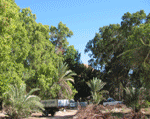 Sawirro Somaliya 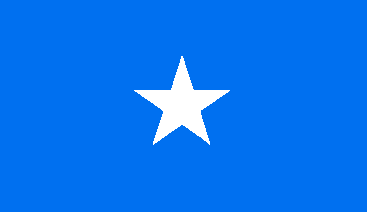 |
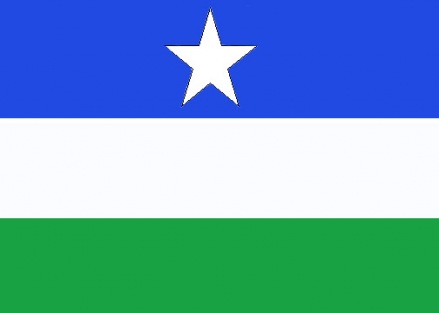
|
GOVERNANCE
The Scourge and Hope of Somalia A New Book By Ismail Ali Ismail 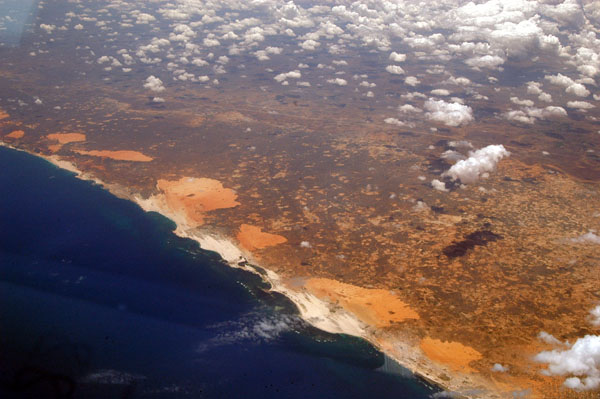 Which Way to the Sea, Please? By Nuraddin Farah Dhulkii Burcad-Badeedda .jpg) Budhcad Badeed Weli Qiil ma Leeyahay? 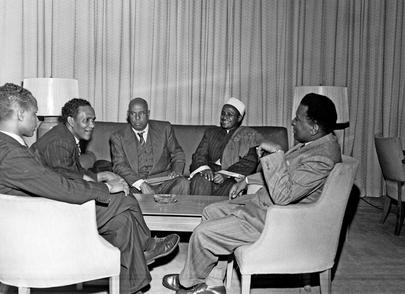 SYL LETTERS By A S Faamo |
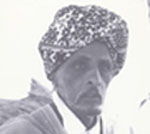 |
 |
© Copyright BiyoKulule Online All rights reserved�
Contact us [email protected] or [email protected] |

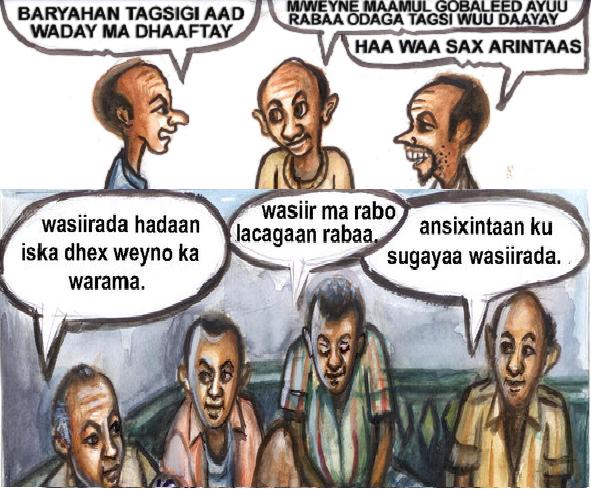
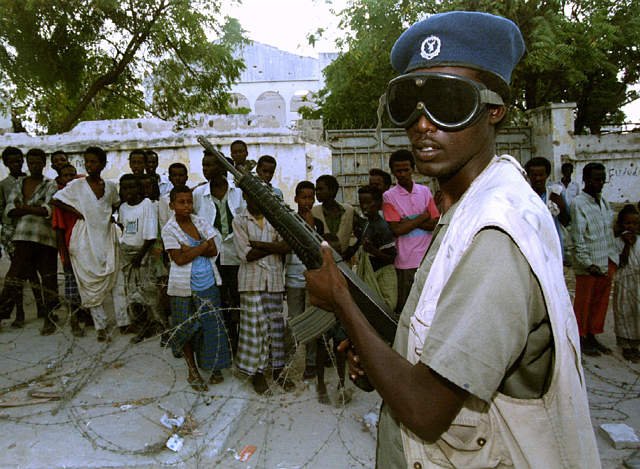


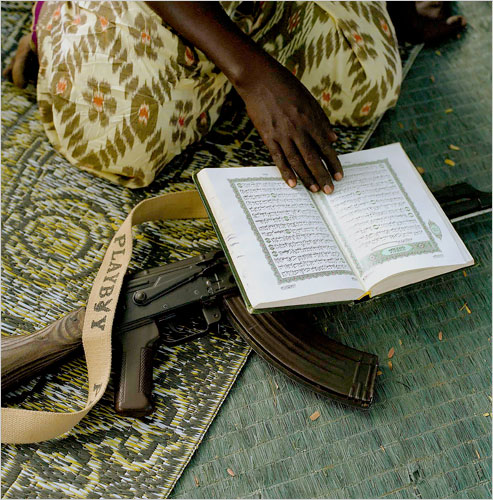

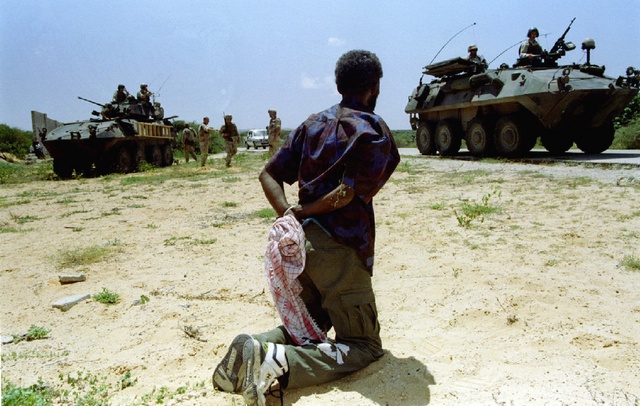
.jpg)

